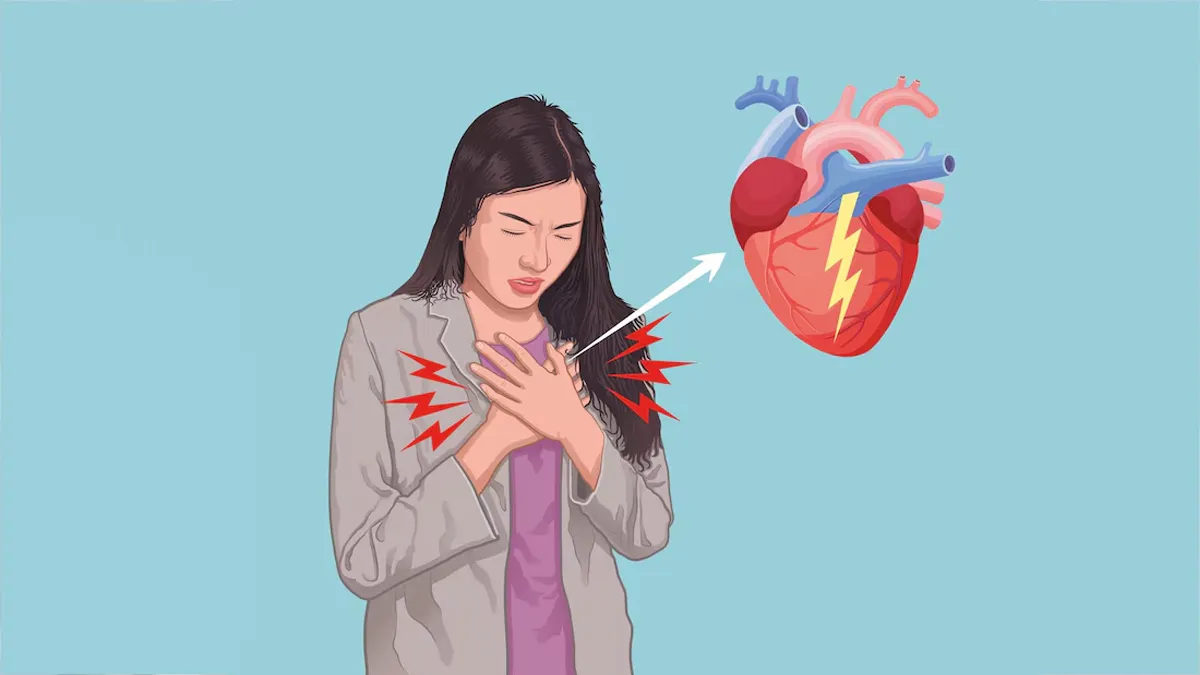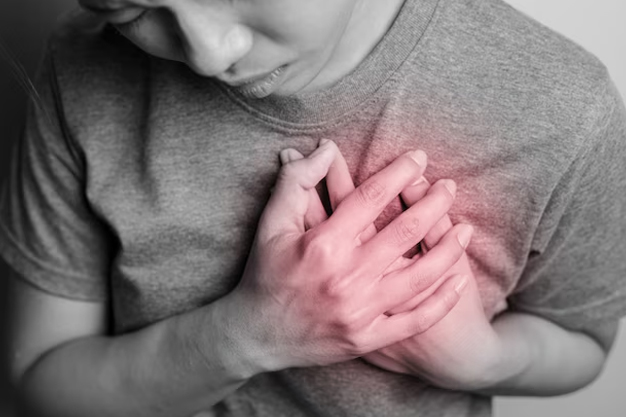
Heart blockage, medically known as Coronary Artery Disease (CAD) or Coronary Heart Disease (CHD), happens when the arteries supplying blood to your heart become narrowed or blocked. This restricts blood flow, which can lead to serious health issues like heart attacks or heart failure.
However, the good news is, your body often gives early warning signs before things get worse. To better understand these early symptoms and how to identify them, we spoke to Dr Gajinder Kumar Goyal, Program Clinical Director - Cardiology at Marengo Asia Hospitals, Faridabad.
Heart blockage occurs when the blood vessels supplying the heart become narrowed or blocked, reducing blood flow. Detecting it early is crucial to prevent serious complications like heart attacks. According to Dr Goyal, here are five early warning signs that should not be ignored:
This is one of the most common symptoms. It may feel like pressure, heaviness, or tightness in the chest, often triggered by physical activity or emotional stress. The discomfort usually improves with rest.
If you find yourself struggling to breathe even after mild exertion, such as walking a short distance or climbing stairs, it could mean your heart isn't pumping effectively due to reduced blood supply.

Feeling unusually tired during routine activities might indicate that your heart isn’t receiving enough oxygen-rich blood to function properly.
Not all heart-related pain is felt in the chest. Discomfort may also appear in the upper body, including the arms, neck, jaw, or back, and can easily be mistaken for muscle pain.
Don't Miss: What Happens When You Don’t Poop For Days? Health Risks And Warning Signs
A racing or fluttering heartbeat, especially if it occurs with other symptoms like chest discomfort or dizziness, can be a sign of a blockage affecting the heart’s rhythm.
These early signs can be subtle but are important indicators of a potential heart issue. Noticing them in time can help with early diagnosis and better outcomes.

Heart blockage mainly develops due to atherosclerosis, a condition where plaque (a mix of cholesterol, fat, calcium, and other substances) builds up inside the coronary arteries. This buildup gradually narrows the arteries, limiting blood flow to the heart.
Several risk factors contribute to this condition, including:
Don't Miss: 6 Early Signs Of A Silent Heart Attack That Often Go Unnoticed
Heart blockage is a serious condition that needs proper attention and long-term management. When detected early, it becomes much easier to control symptoms, avoid complications, and maintain a good quality of life.
Regular medical check-ups play a key role in catching the condition before it worsens. Alongside this, following a heart-healthy lifestyle, which includes eating balanced meals, staying active, managing stress, and quitting smoking, can go a long way in lowering your risk.
In more advanced cases, timely treatment, whether through medication or medical procedures like angioplasty or bypass surgery, can help keep the condition under control and reduce the risk of serious outcomes like a heart attack or heart failure.
Keep reading Herzindagi for more such stories.
Credits: Freepik
Also watch this video
Herzindagi video
Our aim is to provide accurate, safe and expert verified information through our articles and social media handles. The remedies, advice and tips mentioned here are for general information only. Please consult your expert before trying any kind of health, beauty, life hacks or astrology related tips. For any feedback or complaint, contact us at [email protected].